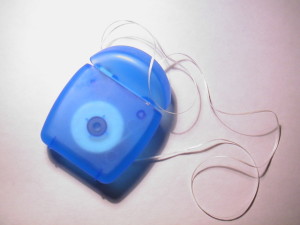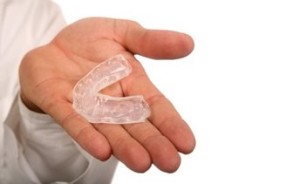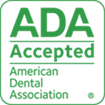If we could send off our patients with a dental salutation, that would be it. Flossing is an incredibly important part of your oral health routine. But while most patients know brushing is a no-brainer, we certainly have trouble getting some of them to floss regularly.
Brushing does an excellent job of scrubbing away the plaque on the visible surfaces of your teeth. But your brush can’t reach between your teeth or under your gum line. And that’s exactly where plaque can build up, harden into tartar, and cause tooth decay.
Flossing empowers you to scrub away the plaque between your teeth and under your gum line. So why don’t people floss more? Some people claim that flossing is uncomfortable. It can be, especially when you’re first building your flossing routine. But the great thing about flossing is that it gets more comfortable—and more effective—the longer you do it.
Flossing FAQs
Our patients often ask us how frequently they should floss, when the best time to floss is, and what the best tools for the job are. Here’s what we recommend:
- Frequency. Floss your teeth at least once per day.
- Time of Day. Pick a time that works best for your routine, whether it be first thing in the morning, after lunch, or before bed.
- Before or After Brushing. We feel that flossing before you brush is best because you can often work the plaque out and then brush it away, but studies show it really doesn’t matter as long as you do it!
- Kids. Your kids should start flossing once they have two teeth that touch. Young children don’t have the dexterity to floss properly, so help them out until they’re about 10 or 11. String floss is very effective, but sometimes difficult to maneuver with kids. Therefore, using floss aids (we like Wild Flossers) can be very helpful.
- Technique. Become a flossing Jedi in these five easy steps from the American Dental Association.
Flossing is an essential part of good oral health. We’d love nothing better than to see that the floss is strong in you at your next dentist appointment. Contact Eggert Family Dentistry today to schedule a visit. Call (651) 482-8412.

 We’ve all experienced the way stress manifests itself in our bodies. Tension headaches are just one common example. But many of us hold stress in our jaws or relieve stress by grinding our teeth. We might not even know we’re doing so, leading to discomfort and pain down the road.
We’ve all experienced the way stress manifests itself in our bodies. Tension headaches are just one common example. But many of us hold stress in our jaws or relieve stress by grinding our teeth. We might not even know we’re doing so, leading to discomfort and pain down the road.

